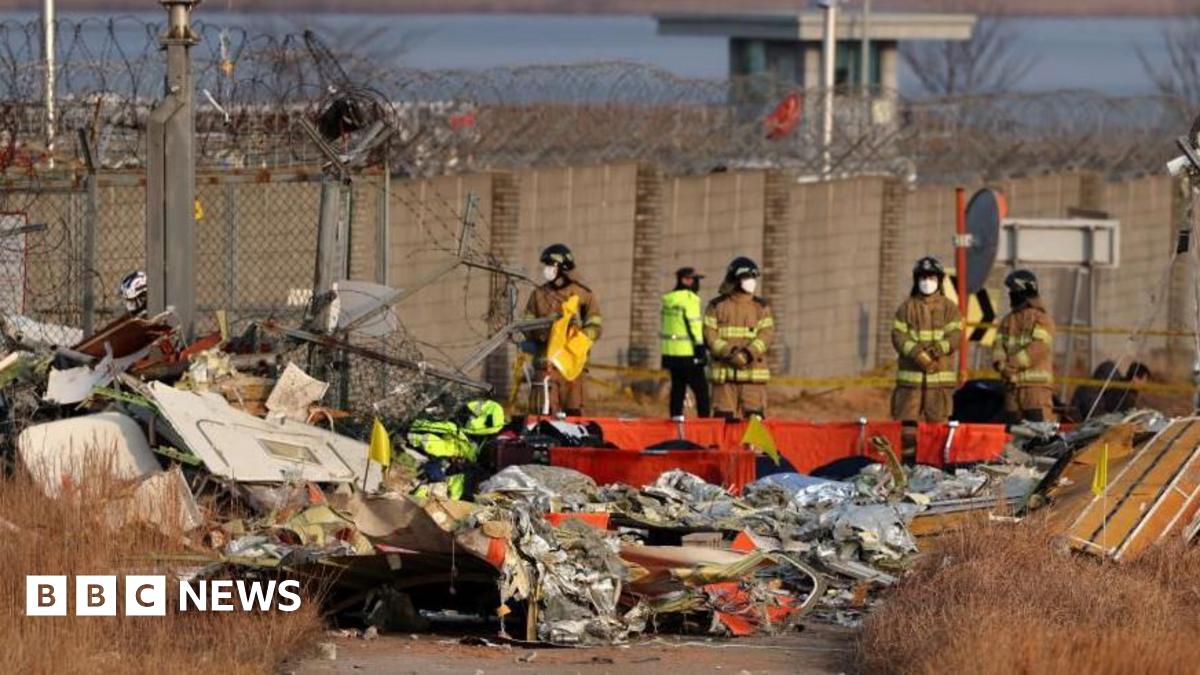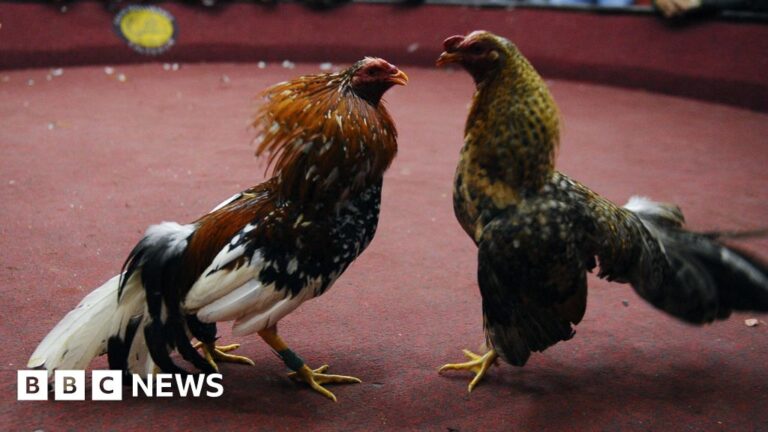Jeju Air: Did bird strikes contribute to South Korean plane crash? What do we know?
Flight 7C2216 was a Boeing 737-800 operated by Jeju Air, Korea’s most popular budget airline.
The aircraft arrived at Muan at 09:00 local time (00:00 GMT).
A South Korean transport official said the plane attempted to land but was forced to stop after the air traffic control warned of the risk of bird strikes.
About two minutes later, the pilot called Mayday and air traffic control cleared the plane to land in the opposite direction.
Local media reported that one of the passengers on the plane sent a message to a relative saying that the bird was “stuck in the wing” and the plane could not land.
One video shows the plane touching down without using its wheels or other landing gear. It skidded down the runway and crashed into a wall before bursting into flames.
A witness told South Korea’s Yonhap news agency that they heard a “loud sound” followed by a “series of explosions”.
In the videos taken from the scene, the plane can be seen rising into the sky from the smoke. After that, firefighters extinguished the fire.
Muan Fire Department Chief Lee Jeong-hyun said in a televised briefing that the tail section of the plane could be identified, but “the shape of the rest of the plane cannot be identified.”
He said bird strikes and bad weather may have contributed to the crash – but the exact cause is still under investigation. The flight and voice recorders on the plane were found.
According to Yonhap news agency, Jeju Air’s chief executive said the crash was “not related to any technical problem”.
South Korea’s transportation department said that the chief pilot on the flight has been in this position since 2019 and has more than 6,800 hours of flight experience.








